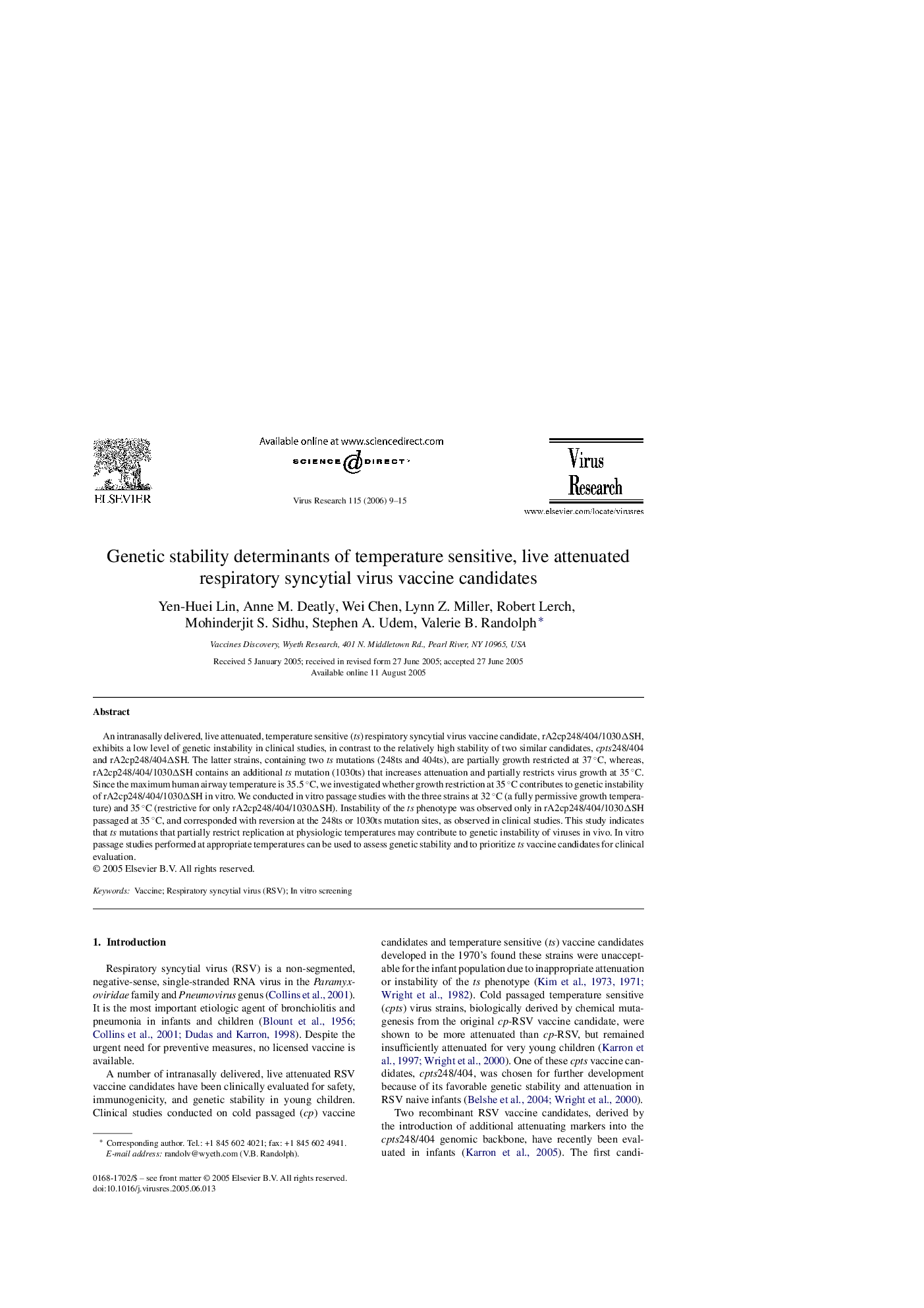| Article ID | Journal | Published Year | Pages | File Type |
|---|---|---|---|---|
| 3431487 | Virus Research | 2006 | 7 Pages |
An intranasally delivered, live attenuated, temperature sensitive (ts) respiratory syncytial virus vaccine candidate, rA2cp248/404/1030ΔSH, exhibits a low level of genetic instability in clinical studies, in contrast to the relatively high stability of two similar candidates, cpts248/404 and rA2cp248/404ΔSH. The latter strains, containing two ts mutations (248ts and 404ts), are partially growth restricted at 37 °C, whereas, rA2cp248/404/1030ΔSH contains an additional ts mutation (1030ts) that increases attenuation and partially restricts virus growth at 35 °C. Since the maximum human airway temperature is 35.5 °C, we investigated whether growth restriction at 35 °C contributes to genetic instability of rA2cp248/404/1030ΔSH in vitro. We conducted in vitro passage studies with the three strains at 32 °C (a fully permissive growth temperature) and 35 °C (restrictive for only rA2cp248/404/1030ΔSH). Instability of the ts phenotype was observed only in rA2cp248/404/1030ΔSH passaged at 35 °C, and corresponded with reversion at the 248ts or 1030ts mutation sites, as observed in clinical studies. This study indicates that ts mutations that partially restrict replication at physiologic temperatures may contribute to genetic instability of viruses in vivo. In vitro passage studies performed at appropriate temperatures can be used to assess genetic stability and to prioritize ts vaccine candidates for clinical evaluation.
